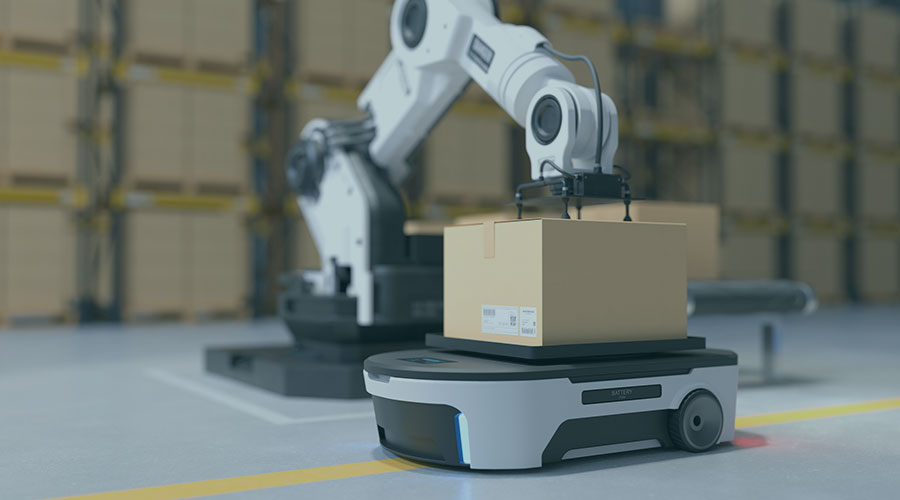Key Takeaways:
- There is a wide variety of applications of artificial intelligence in the real world, including autonomous vehicles, language translation, smart manufacturing and more.
- Artificial intelligence is being used across many different industries, including healthcare, banking, agriculture, engineering and more
- Applications of artificial intelligence will continue to grow as more people use the technology.
Table of Contents
Artificial intelligence (AI) is revolutionizing many facets of our lives. Not only is it changing the way we write, travel and educate the next generation, its applications continue to expand into even more industries. These applications of AI in the real world are quickly being integrated into sectors like engineering, healthcare and customer service. In this article, we dive into 10 different uses of AI applications and how these applications can help improve our society.
10 Uses of Artificial Intelligence
The overall versatility of AI has no bounds, enabling its applications to serve a wide variety of purposes across many diverse industries. As AI use expands by leaps and bounds, we will discover even more ways that its applications can improve our lives. Below are 10 current, real-world uses of AI applications across a range of industries.
1. Personalized Healthcare
Healthcare is one of the best examples of an AI application. AI has been refined throughout the years, particularly when applied to data accuracy. Applications of AI within healthcare can analyze large amounts of personal data, which can then be used to personalize messages to patients. In addition, AI robotics can be used to assist doctors when performing surgeries, as they can function for long periods with a high level of precision.
2. Fraud Detection in Banking
AI has several applications within the banking and finance industry, with its most common use being fraud detection. Scammers can be found all over the world, but they are most frequently found lurking on the internet around online banking and payment data. The type of fraud they create costs the world economy $600 billion annually.
The use of AI in detecting fraud can more effectively identify any banking anomalies in real time. This application can track specific spending patterns of individuals and then store the historical data to detect future fraudulent transactions.
3. Autonomous Vehicles
One of the most well-known engineering applications of AI can be attributed to autonomous or “self-driving” vehicles on the road. AI uses algorithms that learn the environment in which the car is located to make informed decisions on maneuvering. This application can learn and adapt, which equips it with enough information to handle complex driving situations.
In October 2015, Tesla released the first autonomous vehicle technology that combined adaptive cruise control and “Autosteer.” In 2024, more than 30 million self-driving vehicles are on the road worldwide. This number is expected to grow as technology advances.
4. Robotics
As mentioned above, AI applications can be used within robotics to assist with surgeries and self-driving vehicles. Through machine learning, robots are able to perform complex tasks by mimicking the actions of a real human being, including packaging and even customer service (more on that later). In fact, the applications of AI in robotics have come a long way and can go beyond completing repetitive tasks. They can also act on real-time decisions in their environment in certain circumstances.


Get Industry leading insights from Robert F. Smith directly in your LinkedIn feed.
Get Industry leading insights from Robert F. Smith directly in your LinkedIn feed.
5. Smart Energy Management
AI is revolutionizing energy management, as its applications are becoming more widely used to create efficiencies in overall energy consumption and production. This AI application is able to identify specific trends in weather forecasts during specific months and in related energy consumption patterns. This integration of AI has already resulted in sustainability improvements in managing energy, creating a better tomorrow for everyone.
6. Language Translation
AI is transforming the language translation industry. Language translation has typically been viewed as a job that needs to be performed by a human to ensure the most efficient and accurate translation. However, applications of AI can now assist with language processing and localization, including translation services. AI-powered machine translation tools have made the language translation process much more streamlined, even bridging the gap when it comes to communicating with non-native speakers.
7. Natural Disaster Prediction
AI is being applied to weather forecasting models through machine learning by using algorithms and data to predict potential natural disasters. Some of these machine-learning models are already being used in routine weather predictions. However, additional work must be done before it can be considered entirely operational. Full implementation of these machine learning models can reduce the time it takes to predict weather anomalies and alert people even sooner if severe weather is on the horizon.
8. Customer Service Chatbots
The release of the AI application ChatGPT took the world by storm in 2022 with its incredible capabilities. This was one of the first chatbots that allowed anyone to explore the many capabilities of AI. This platform interacts with users in such a way that it seems like a conversation, along the lines of a customer service representative. ChatGPT is now just one example of a chatbot. Many businesses have adopted their own iterations of chatbots to provide customers with 24/7 support, especially as it relates to online shopping and travel.
9. Precision Agriculture
It might come as a surprise to some, but applications of AI can also be used within the agriculture industry. AI has the ability to inform precision agriculture to help farmers with their day-to-day workload. When it comes to the soil for growing crops, machine learning can identify potential deficiencies to determine which crop would be the best to grow on what soil. AI can also help identify weather conditions and patterns, as mentioned earlier, which can inform the overall planting schedule for farmers.
10. Smart Manufacturing
AI has gained a lot of momentum in the manufacturing industry by creating efficiencies for many different aspects of manufacturing. Machine vision is widely used in smart manufacturing through a high-resolution camera that allows the machines to “see” what they are working on. In addition to this newly found “sight,” the machines can also make decisions in real time based on what they see. They can pick out defective products on a production line efficiently rather than relying on a human’s eyes alone.
If you are interested in learning more about the latest progressions in AI, including more than just 10 applications of artificial intelligence in the real world, as well as what the future of AI looks like, follow entrepreneur Robert F. Smith on LinkedIn.






